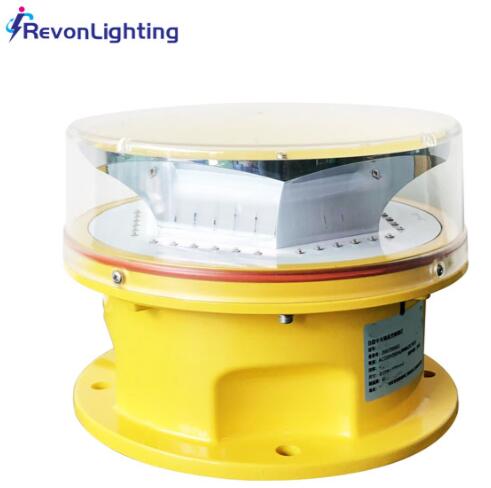Posted: 2025-06-16
As cities grow vertically, tower crane warning lights have become critical safety components for construction sites worldwide. These specialized lighting systems protect both aircraft and ground personnel by making tall cranes visible in all weather conditions. This guide explores the technology, regulations, and best practices surrounding these essential safety devices.
Why Tower Crane Warning Lights Matter
Construction cranes present unique hazards:
Project into controlled airspace
Operate in dense urban environments

Frequently change height during projects
Effective tower crane warning lights address these challenges by:
Providing 24/7 visibility to low-flying aircraft
Complying with aviation authority regulations
Adapting to changing crane configurations
Withstanding harsh jobsite conditions
Technology Breakdown
1. Modern Lighting Systems
High-intensity LED arrays (L-864/L-810 standards)
Dual-mode operation (day/night brightness)
Synchronized flashing patterns
2. Power Solutions
Hardwired electrical systems
Solar-hybrid configurations
Battery backup capabilities
3. Smart Features
Automatic light sensors
Remote monitoring
Fault detection systems
Regulatory Landscape
Tower crane warning lights must meet:
FAA Advisory Circular 70/7460-1L (US)
ICAO Annex 14 (International)
Local aviation authority rules
Key compliance requirements:
Minimum light intensity (varies by location)
Specific flash patterns
Proper color chromaticity
Documentation of approvals
Installation Best Practices
1. Strategic Placement
Jib and counter-jib extremities
Tower sections above certain heights
Climber mechanisms during jumps
2. Electrical Considerations
Surge protection
Redundant power paths
Weatherproof connections
3. Structural Integration
Vibration-resistant mounts
Easy access for maintenance
Compatibility with climbing systems
Maintenance Protocols
Regular upkeep ensures continuous compliance:
Daily: Visual confirmation of operation
Weekly: Cleaning of lenses and solar panels
Monthly: Electrical system checks
Annually: Complete system inspection
Emerging Innovations
The future of tower crane warning lights includes:
Integrated collision avoidance systems
AI-powered brightness adjustment
Wireless monitoring networks
Advanced self-diagnostic capabilities
Selecting the Right System
Key evaluation criteria:
| tower crane warning lights |
Regulatory Compliance (Proper certifications)
Durability (Jobsiterated construction)
Flexibility (Adapts to crane growth)
Visibility (Meets all range requirements)
Support (Manufacturer technical assistance)
Tower crane warning lights represent a vital intersection of construction safety and aviation protection. As urban development continues to accelerate, these systems will play an increasingly important role in preventing accidents and ensuring regulatory compliance. Modern solutions now offer unprecedented reliability and smart features that go beyond basic requirements.
For construction firms and crane operators, investing in quality warning lighting isn't just about meeting regulations—it's about demonstrating commitment to safety and professionalism. The next generation of tower crane warning lights will likely incorporate even more advanced technologies, potentially integrating with urban air traffic management systems as drone deliveries and air taxis become more common. By staying informed about these developments, construction professionals can ensure their projects remain safe and compliant in our evolving urban landscapes.